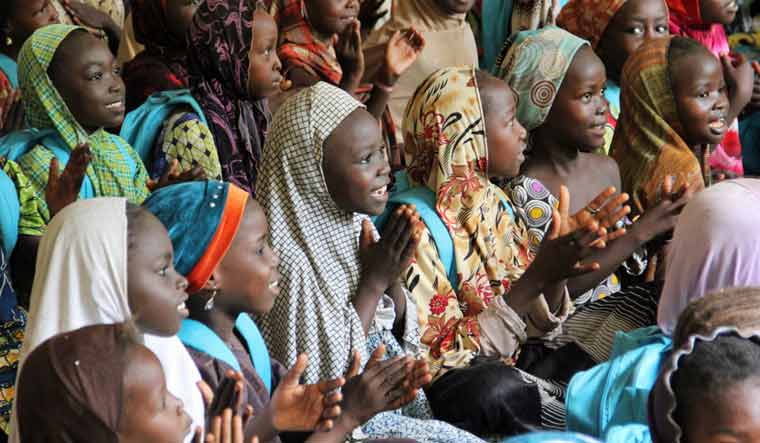Tackling the problem of child marriage has always been a concern for human rights activists across the globe. Especially, in the African region, child marriage has been extensive. In recent years, efforts of UNICEF and international non-governmental organisations like Girls not Brides has helped bring down the rates of child marriage in various parts of Africa.
also read
- Anna University sexual assault: Madras High Court reminds society can't dictate how a woman should live, wants action against Chennai Commissioner
- Syria: Sniffer dogs, engineering experts deployed as Sednaya prison's underground cells remain unbreached | VIDEOS
- WATCH | Guinea Nzerekore football riot deaths: Scary videos of violence, overflowing morgues and politics, what we know so far
- Ukraine's Witches of Bucha still shooting down Russian drones, says Putin won't respect peace talks
- Malaria treatment crisis in Africa: New study finds resistance to key drug
The practice of child marriage is deeply rooted in traditional African culture, which has been practiced for centuries now. Many Africans consider breaking their cultural traditions a sin that they commit against their religion and their community. Traditions followed in places like Ethiopia, consider marriage as a natural phase in a girls’ life that follows genital mutilation and menstruation.
Most of these traditional beliefs uphold patriarchal notions and deepen the already existent gender inequality within several African communities. A Report on Child Marriage in Africa developed by the Centre of Human Rights, revealed that, laws of discriminatory nature, social beliefs and cultural and religious practices tend to shape women’s social and economic roles, making girls more vulnerable to child marriage than boys.
More often than not, girls are married off even before they become physically mature to bear children. This is driven by various reasons ranging from poverty to fear for girls’ safety.
Most families that struggle economically are likely to marry off their daughters while they are still very young. They don’t see girls in the family as assets, who can bring money into the family if they are educated and employed. Rather, they are considered a financial burden.
In certain cases, girls are even used as substitutes for money. The families that cannot afford to spend money to resolve conflicts and pay off debts, girls in the family are given away as compensation.
Another major reason that is used to justify child marriage is sexual violence that women in many African countries are prone to. Instabilities and insurgencies dominate swaths of the African continent. Rebel groups and insurgents see sexual violence as a weapon of war, to punish women and girls along sectarian lines. Parents feel that marrying girls off at an early age would ensure their safety.
In the recent past, there has been an increasing commitment to end child marriages in Africa. Political leaders and the African civil society have started viewing child marriage as a violation of human rights and as a hindrance to the development of Africa.
The Protocol to the African Charter on Human and Peoples’ Rights on the Rights of Women in Africa, commonly known as Maputo protocol has been instrumental in addressing the issue of child marriage in Africa. Article 6 ( c ) of the protocol prohibits marriage under the age of 18, emphasising the need to weed out child marriage. Out of the 55 members of the African Union, 40 have ratified the protocol, which throws light on the winds of changes in Africa.
A report published by Overseas Development Institute in 2016 suggested that child marriage in Ethiopia is declining, owing to the nation’s strong policy and legal frameworks. The decline is especially evident in areas where importance is given to girls’ education and girls’ club activities. Also, in a list put up by Girls not Brides indicating the top 20 countries with the highest prevalence rates of child marriage, Ethiopia takes the 18th position. The prevalence has dropped by a third in the last 10 years.
Efforts of NGOs like Girls not Brides, Too young to wed, and Plan International have brought about remarkable changes in the African region. “I would’ve been married by now and expecting a baby sometime soon, if it wasn’t for the training I’ve received,” Yekaba, a-12-year old Ethiopian girl in a video released by ‘Plan International’ on March 6 says.
More people are now aware of the issues posed by child marriage, especially to young girls who are mentally and physically immature for sexual intercourse, childbearing and responsibilities of married life. Girls not Brides in a brief report by Ending child marriage in Africa says “If Africa is to fulfil its vision for emergence and development, outlined in Agenda 2063, it is time to match this commitment with the coordinated strategies, action and resources to end child marriage and enable every girl to thrive.” Let us remain hopeful that in a matter of years not just Africa, but the whole world is free of the threat of child marriage.



